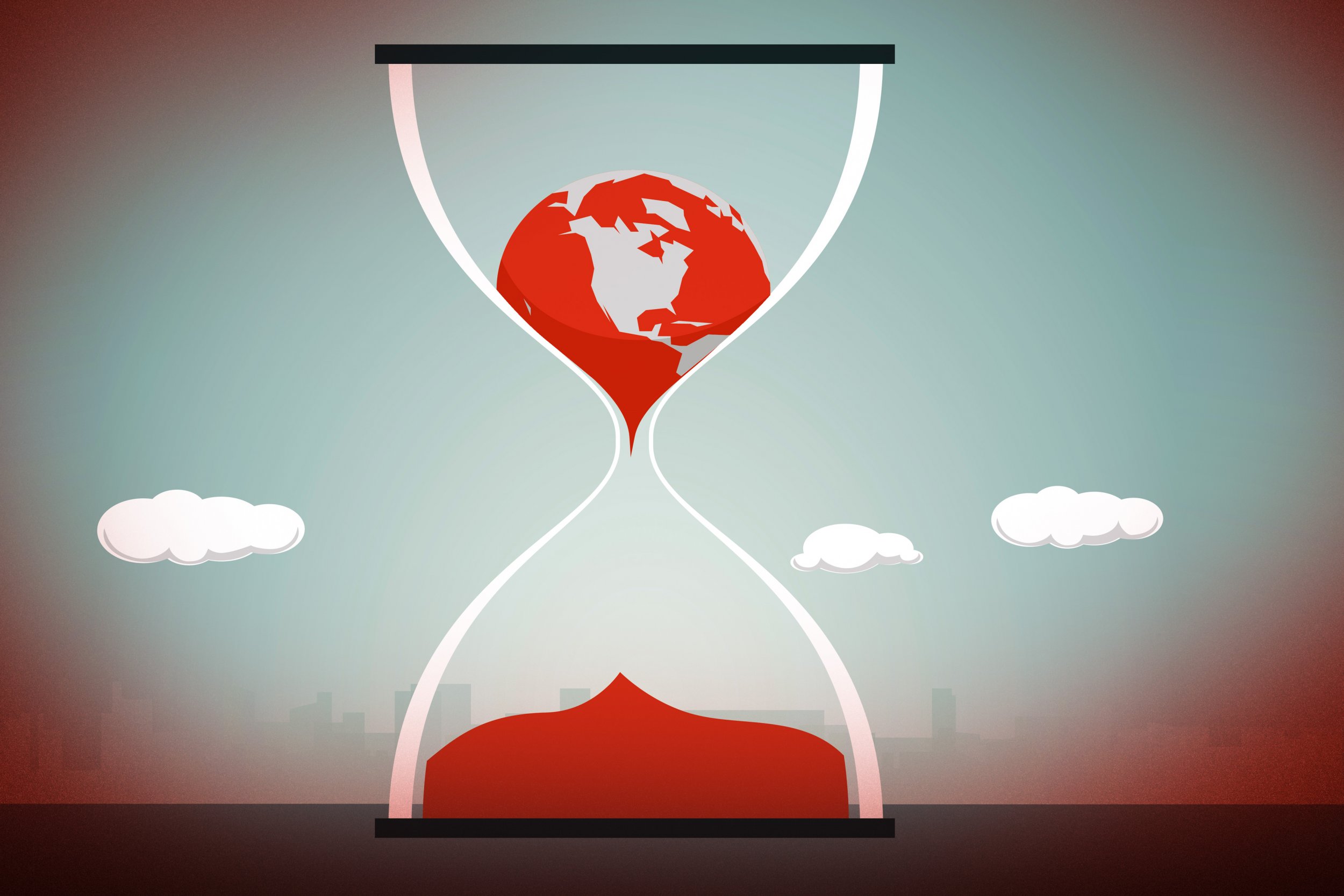
A new analysis of previous mass extinctions adds more support to the idea that there will be another—soon.
Daniel Rothman, a geophysict at the Massachusetts Institute of Technology, compiled a database of information about previous mass extinctions and major environmental changes. After analyzing the data, he boiled it down to a (deceptively) simple equation and a number: the amount of carbon that would be required—if added over a short period of time—to throw the carbon cycle out of whack.
That threshold is about 310 gigatons of extra carbon in the oceans. Earth will likely hit that critical amount by 2100, according to predictions based on Intergovernmental Panel on Climate Change models.
"Every time there has been a mass extinction in the geologic record, we know there has also been a serious disruption in the carbon cycle," Rothman told Newsweek, though not every carbon cycle disruption leads to a mass extinction. The carbon cycle is a collection of processes that move the element between Earth's atmosphere—where it is associated with greenhouse gases—and its soil and oceans. Human influence on this cycle is a key issue behind climate change.
The paper tries to answer a simple question, Rothman said: what separates the carbon cycle disruptions that lead to mass extinctions from those that don't?
While there may be a critical, threshold amount when carbon is added over a short period of time, the amount is less important than the rate at which it's added. In both cases, the threshold is the point at which the extra carbon would overwhelm an ecosystem's ability to adapt.
To test the idea, Rothman compiled a database of information about previous mass extinction and major environmental changes. After analyzing the data, he boiled the interactions down to a deceptively simple equation that can show the amount of carbon that would be required—if added over a short period of time—to throw the carbon cycle out of whack.
That critical amount is about 310 gigatons of extra carbon in the oceans, he said. Earth will likely reach that point by the end of this century, according to predictions based on Intergovernmental Panel on Climate Change models.
There are some major caveats to the paper. The paper doesn't identify any mechanisms for how reaching that threshold would lead to a mass extinction event; the carbon cycle could just be a related indicator, not a cause, of a mass extinction. And the data came from records gathered from many other sources, which introduces some imperfections and forms of bias.
Ultimately, the paper is putting forward a hypothesis based on scientific reasoning for discussion, Rothman said. "The hypothesis in this paper deserves some scrutiny," he said. "This [paper] represents a compilation of what the best data imply now."
What Rothman's analysis doesn't mean is that everything on Earth will die immediately the day after we reach that threshold. The full effect of the disrupted carbon cycle could take 10,000 years to become apparent, he noted.
Some scientists believe that a mass extinction could already be happening, (Acclaimed science writer Elizabeth Kolbert even covered this idea in her 2014 book, The Sixth Extinction, which Rothman said contributed to his interest in the field.)
"We risk [a mass extinction] now, too," he said. "We're headed that way."
Uncommon Knowledge
Newsweek is committed to challenging conventional wisdom and finding connections in the search for common ground.
Newsweek is committed to challenging conventional wisdom and finding connections in the search for common ground.
About the writer
Kate Sheridan is a science writer. She's previously written for STAT, Hakai Magazine, the Montreal Gazette, and other digital and ... Read more
To read how Newsweek uses AI as a newsroom tool, Click here.








